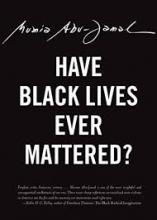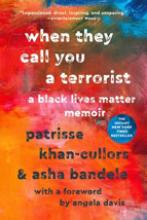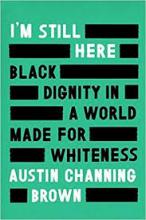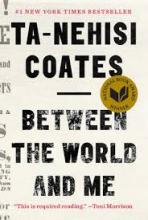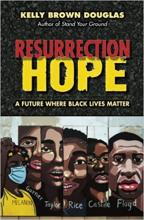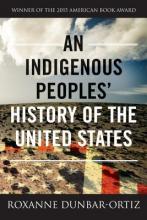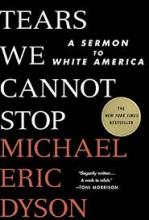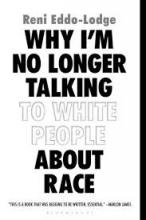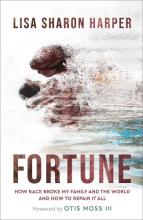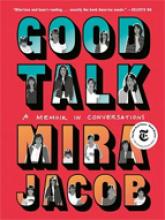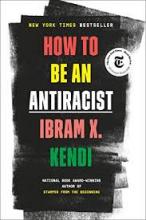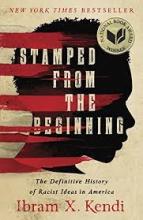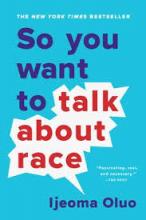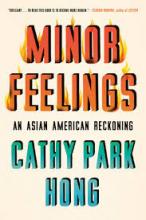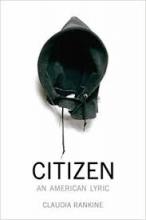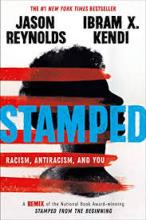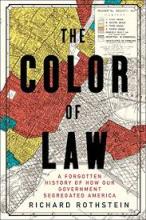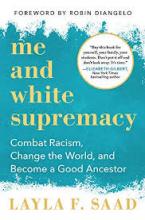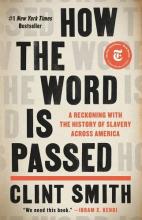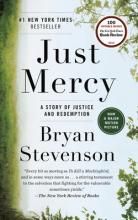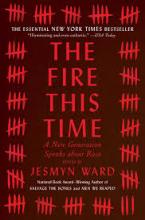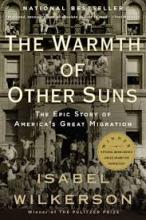Have Black Lives Ever Mattered? by Mumia Abu-Jamal
In Have Black Lives Ever Mattered? Mumia gives voice to the many people of color who have fallen to police bullets or racist abuse, and offers the post-Ferguson generation advice on how to address police abuse in the United States. This collection of his radio commentaries on the topic features an in-depth essay written especially for this book to examine the history of policing in America, with its origins in the white slave patrols of the antebellum South and an explicit mission to terrorize the country's Black population.
The New Jim Crow by Michelle Alexander
The New Jim Crow is a stunning account of the rebirth of a caste-like system in the United States, one that has resulted in millions of African Americans locked behind bars and then relegated to a permanent second-class status — denied the very rights supposedly won in the civil rights movement.
The Fire Next Time by James Baldwin
At once a powerful evocation of James Baldwin’s early life in Harlem and a disturbing examination of the consequences of racial injustice, the book is an intensely personal and provocative document from the iconic author of If Beale Street Could Talk and Go Tell It on the Mountain.
When They Call You a Terrorist by Asha Bandele and Patrisse Khan-Cullors
When They Call You a Terrorist: A Black Lives Matter Memoir, Patrisse Cullors’ first book cowritten by ashe bandele, is a poetic memoir and reflection on humanity. A New York Times Best Seller – necessary and timely, Patrisse’s story asks us to remember that protest in the interest of the most vulnerable comes from love.
How Does It Feel To Be A Problem? by Moustafa Bayoumi
Bayoumi takes readers into the lives of seven twenty-somethings living in Brooklyn, home to the largest Arab-American population in the United States. He moves beyond stereotypes and clichés to reveal their often unseen struggles, from being subjected to government surveillance to the indignities of workplace discrimination.
I’m Still Here: Black Dignity in a World Made for Whiteness by Austin Channing Brown
For readers who have engaged with America's legacy on race through the writing of Ta-Nehisi Coates and Michael Eric Dyson, I’m Still Here is an illuminating look at how white, middle-class, evangelicalism has participated in an era of rising racial hostility, inviting the reader to confront apathy, recognize God's ongoing work in the world, and discover how Blackness--if we let it — can save us all.
Between The World And Me by Ta-Nehisi Coates
In a profound work that pivots from the biggest questions about American history and ideals to the most intimate concerns of a father for his son, Ta-Nehisi Coates offers a powerful new framework for understanding our nation’s history and current crisis. Americans have built an empire on the idea of “race,” a falsehood that damages us all but falls most heavily on the bodies of Black women and men—bodies exploited through slavery and segregation, and, today, threatened, locked up, and murdered out of all proportion.
Why Are All The Black Kids Sitting Together In The Cafeteria? by Beverly Daniel Tatum
Beverly Daniel Tatum, a renowned authority on the psychology of racism, argues that straight talk about our racial identities is essential if we are serious about enabling communication across racial and ethnic divides. These topics have only become more urgent as the national conversation about race is increasingly acrimonious.
White Fragility by Robin Diangelo
White Fragility is a state in which even a minimum amount of racial stress becomes intolerable, triggering a range of defensive moves. These moves include the outward display of emotions such as anger, fear, and guilt, and behaviors such as argumentation, silence, and leaving the stress-inducing situation. These behaviors, in turn, function to reinstate white racial equilibrium. This book explicates the dynamics of White Fragility and how we might build our capacity in the on-going work towards racial justice.
Resurrection Hope: A Future Where Black Lives Matter by Kelly Brown Douglas
Kelly Brown Douglas' new book Resurrection Hope calls white clergy to repent and lead in changing the corrupted moral imaginary that grips them. A review of her book is featured in the February 2022 issue of Sojourners.
An Indigenous Peoples’ History of the United States by Roxanne Dunbar-Ortiz
In An Indigenous Peoples’ History of the United States, Dunbar-Ortiz adroitly challenges the founding myth of the United States and shows how policy against the Indigenous peoples was colonialist and designed to seize the territories of the original inhabitants, displacing or eliminating them. And as Dunbar-Ortiz reveals, this policy was praised in popular culture, through writers like James Fenimore Cooper and Walt Whitman, and in the highest offices of government and the military.
Tears We Cannot Stop by Michael Eric Dyson
In Tears We Cannot Stop: A Sermon to White America, Dyson argues that if we are to make real racial progress we must face difficult truths, including being honest about how Black grievance has been ignored, dismissed, or discounted.
Why I’m No longer Talking to White People About Race by Reni Eddo-Lodge
Award-winning journalist Reni Eddo-Lodge was frustrated with the way that discussions of race and racism are so often led by those blind to it, by those willfully ignorant of its legacy. Her response, Why I'm No Longer Talking to White People About Race, has transformed the conversation both in Britain and around the world.
Blindspot by Anthony Greenwald and Mahzarin Banaj
In Blindspot, Mahzarin Banaji and Anthony Greenwald explore hidden biases that we all carry from a lifetime of experiences with Blindspot approved.inddsocial groups – age, gender, race, ethnicity, religion, social class, sexuality, disability status, or nationality.
Fortune: How Race Broke My Family and the World--And How to Repair It All by Lisa Sharon Harper
Drawing on her lifelong journey to know her family's history, leading Christian activist Lisa Sharon Harper recovers the beauty of her heritage, exposes the brokenness that race has wrought in America, and casts a vision for collective repair.
Good Talk: A Memoir in Conversations by Mira Jacob
Like many 6-year-olds, Mira Jacob’s half-Jewish, half-Indian son, Z, has questions about everything. At first they are innocuous enough, but as tensions from the 2016 election spread from the media into his own family, they become much, much more complicated. Trying to answer him honestly, Mira has to think back to where she’s gotten her own answers: her most formative conversations about race, color, sexuality, and, of course, love.
This Book Is Anti-Racist by Tiffany Jewell
Author Tiffany Jewell, an anti-bias, anti-racist educator and activist, builds solidarity beginning with the language she chooses--using gender neutral words to honor everyone who reads the book. Illustrator Aurélia Durand brings the stories and characters to life with kaleidoscopic vibrancy. After examining the concepts of social identity, race, ethnicity, and racism, learn about some of the ways people of different races have been oppressed, from indigenous Americans and Australians being sent to boarding school to be "civilized" to a generation of Caribbean immigrants once welcomed to the U.K. being threatened with deportation by strict immigration laws.
How To Be an Anti-Racist by Ibram X. Kendi
In his memoir, Kendi weaves together an electrifying combination of ethics, history, law, and science--including the story of his own awakening to antiracism — bringing it all together in a cogent, accessible form. He begins by helping us rethink our most deeply held, if implicit, beliefs and our most intimate personal relationships (including beliefs about race and IQ and interracial social relations) and reexamines the policies and larger social arrangements we support.
Stamped From the Beginning by Ibram X. Kendi
In this deeply researched and fast-moving narrative, Kendi chronicles the entire story of anti-Black racist ideas and their staggering power over the course of American history. Stamped from the Beginning uses the life stories of five major American intellectuals to offer a window into the contentious debates between assimilationists and segregationists and between racists and antiracists.
Mindful of Race by Ruth King
Drawing on her expertise as a meditation teacher and diversity consultant, King helps readers of all backgrounds examine with fresh eyes the complexity of racial identity and the dynamics of oppression. She offers guided instructions on how to work with intense emotions mindfully and shows us how to cultivate a culture of care from a less tangled place to a place of greater clarity and compassion.
So You Want to Talk About Race by Ijeoma Oluo
In So You Want to Talk About Race, Ijeoma Oluo guides readers of all races through subjects ranging from intersectionality and affirmative action to “model minorities” in an attempt to make the seemingly impossible possible: honest conversations about race and racism, and how they infect almost every aspect of American life.
An African American and Latinx History of the United States by Paul Ortiz
Spanning more than two hundred years, An African American and Latinx History of the United States is a revolutionary, politically charged narrative history, arguing that the “Global South” was crucial to the development of America as we know it. Scholar and activist Paul Ortiz challenges the notion of westward progress as exalted by widely taught formulations like “manifest destiny” and “Jacksonian democracy,” and shows how placing African American, Latinx, and Indigenous voices unapologetically front and center transforms U.S. history into one of the working class organizing against imperialism.
Minor Feelings by Cathy Park Hong
Poet and essayist Cathy Park Hong fearlessly and provocatively blends memoir, cultural criticism, and history to expose fresh truths about racialized consciousness in America. Part memoir and part cultural criticism, this collection is vulnerable, humorous, and provocative—and its relentless and riveting pursuit of vital questions around family and friendship, art and politics, identity and individuality, will change the way you think about our world.
Citizen: An American Lyric by Claudia Rankine
Claudia Rankine’s bold book recounts mounting racial aggressions in ongoing encounters in 21st-century daily life and in the media. Some of these encounters are slights, seemingly slips of the tongue, and some are intentional offensives in the classroom, at the supermarket, at home, on the tennis court with Serena Williams and the soccer field with Zinedine Zidane, online, on TV — everywhere, all the time.
Stamped: Racism, Antiracism and You by Jason Reynolds and Ibram X. Kendi
This remarkable reimagining of Dr. Ibram X. Kendi's National Book Award-winning Stamped from the Beginning reveals the history of racist ideas in America, and inspires hope for an antiracist future. It takes you on a race journey from then to now, shows you why we feel how we feel, and why the poison of racism lingers. It also proves that while racist ideas have always been easy to fabricate and distribute, they can also be discredited.
The Color of Law by Richard Rothstein
In this groundbreaking history of the modern American metropolis, Richard Rothstein, a leading authority on housing policy, explodes the myth that America’s cities came to be racially divided through de facto segregation—that is, through individual prejudices, income differences, or the actions of private institutions like banks and real estate agencies. Rather, The Color of Law incontrovertibly makes clear that it was de jure segregation—the laws and policy decisions passed by local, state, and federal governments—that actually promoted the discriminatory patterns that continue to this day.
Me and White Supremacy by Layla F. Saad
Me and White Supremacy: A 28-Day Challenge to Combat Racism, Change the World, and Become a Good Ancestor leads readers through a journey of understanding their white privilege and participation in white supremacy, so that they can stop (often unconsciously) inflicting damage on Black, indigenous and people of color, and in turn, help other white people do better, too. The book goes beyond the original workbook by adding more historical and cultural contexts, sharing moving stories and anecdotes, and includes expanded definitions, examples, and further resources.
How the Word Is Passed: A Reckoning with the Hisory of Slavery Across America by Clint Smith
In How the Word Is Passed, Clint Smith visits multiple historic sites to offer a mosaic portrait of how different places tell, or do not tell, the truth about slavery. The book meditates on the capacity of our collective symbolic infrastructure to prepare us to rectify persistent material inequalities.
Just Mercy by Bryan Stevenson
Just Mercy tells the story of the Equal Justice Initiative (EJI), from the early days with a small staff facing the nation’s highest death sentencing and execution rates, through a successful campaign to challenge the cruel practice of sentencing children to die in prison, to revolutionary projects designed to confront Americans with our history of racial injustice.
AOS2.jpg
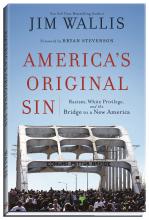
America’s Original Sin by Jim Wallis
"America’s problem with race has deep roots, with the country’s foundation tied to their near extermination of one race of people and the enslavement of another. Racism is truly our nation’s original sin."
The Fire This Time by Jesmyn Ward
In this bestselling, widely lauded collection, Jesmyn Ward gathers our most original thinkers and writers to speak on contemporary racism and race, including Carol Anderson, Jericho Brown, Edwidge Danticat, Kevin Young, Claudia Rankine, and Honoree Jeffers. “An absolutely indispensable anthology” (Booklist, starred review), The Fire This Time shines a light on the darkest corners of our history, wrestles with our current predicament, and imagines a better future.
The Warmth of Other Suns by Isabel Wilkerson
In this epic, beautifully written masterwork, Pulitzer Prize-winning author Isabel Wilkerson chronicles one of the great untold stories of American history: the decades-long migration of Black citizens who fled the South for northern and western cities, in search of a better life.
Note: All books featured on this list were independently selected by Sojourners’ editors and writers. Sojourners has partnered with Bookshop.org, an online bookstore with a mission to financially support local, independent bookstores. When you order through the Bookshop links on sojo.net, Sojourners earns a small commission, and a matching commission is paid to independent bookstores.
